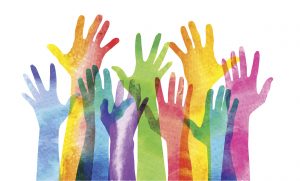
Adam Hadad, Managing Editor|
One of the things that makes life so great is the diversity between people, and I feel truly blessed to be able to experience it at the center of it all—New York City, the city of opportunity. Cultural competence brings values to a community and to a certain degree, defines what that community is all about.
Culture is expressed through the history, traditions, customs, and institutions of certain groups of people. We as individuals grew up and developed in some type of culture. We defined it distinctly, whether it’s by state or nation. These environments dictate what we learn, how we learn it, and the importance of learning it in relation to other people. This knowledge is then passed on from one generation to the next.
Understanding your own culture and its beliefs creates the starting point for your journey of being culturally competent. Exploring your own familial roots-what it symbolizes and how it makes you feel-makes it easier to increase our individual knowledge about other cultures. The many different ideologies start becoming clear, and instead of looking at it with a judgmental lens, it’ll allow us to be more open-minded and inclusive.
I believe in the importance of being socially intelligent. Living in a country filled with diversity, we can’t help but interact with people from many different backgrounds. Persuasions of the social psyche, requires deep comprehension of what people hold dear in terms of their morals and dogmas in life.

“Golden Rules” were taught to us by our parents since we were kids, and as adults, the respect we give to others becomes a little more sophisticated as we gain different philosophies in the facets of our lives. Culture is comprised of the core building blocks that our identities as individuals, and having respect for diversity, justice, and fairness for all cultures allows for the space and freedom we require to let ourselves evolve.
This holds true, especially today. Wherever you decide to go with your career, societies everywhere are becoming more culturally diverse, yet tensions surrounding inequality and biases still persist. Discriminations have serious consequences, and the negative effects are present not only for the victims, but for everyone else as well. Incidences within workplaces can result in people feeling invalidated whether or not they are directly related to the complication.
Cultural competence is not the solution to everything discriminatory, but it is indeed a process. Just like any skill, it requires improvement and honing that takes time. Effective understanding of someone’s background is the key to joyful interactions with others, whether it is within a community or at work.
Dale Carnegie once said that the key to being a great conversationalist is “to be an attentive listener.” He continued, “to be interesting, be interested. Ask questions that other persons will enjoy answering.” Everyone has different experiences, and they love to talk about it to someone else; sometimes all it takes is listening instead of just waiting for our turn to talk. Learn about people, and you will better your community through the understanding of personal differences.
From the individual level to the global magnitude, being culturally competent can only be a good thing. Selfishly speaking, wanting to change others to a standard set by another culture is solely a waste of time; it is more resourceful to use that time to gain more knowledge of others and having that ability to reflect upon it and elevate your own culture for the better. After all, our culture is part of our identity.
Leave a Reply